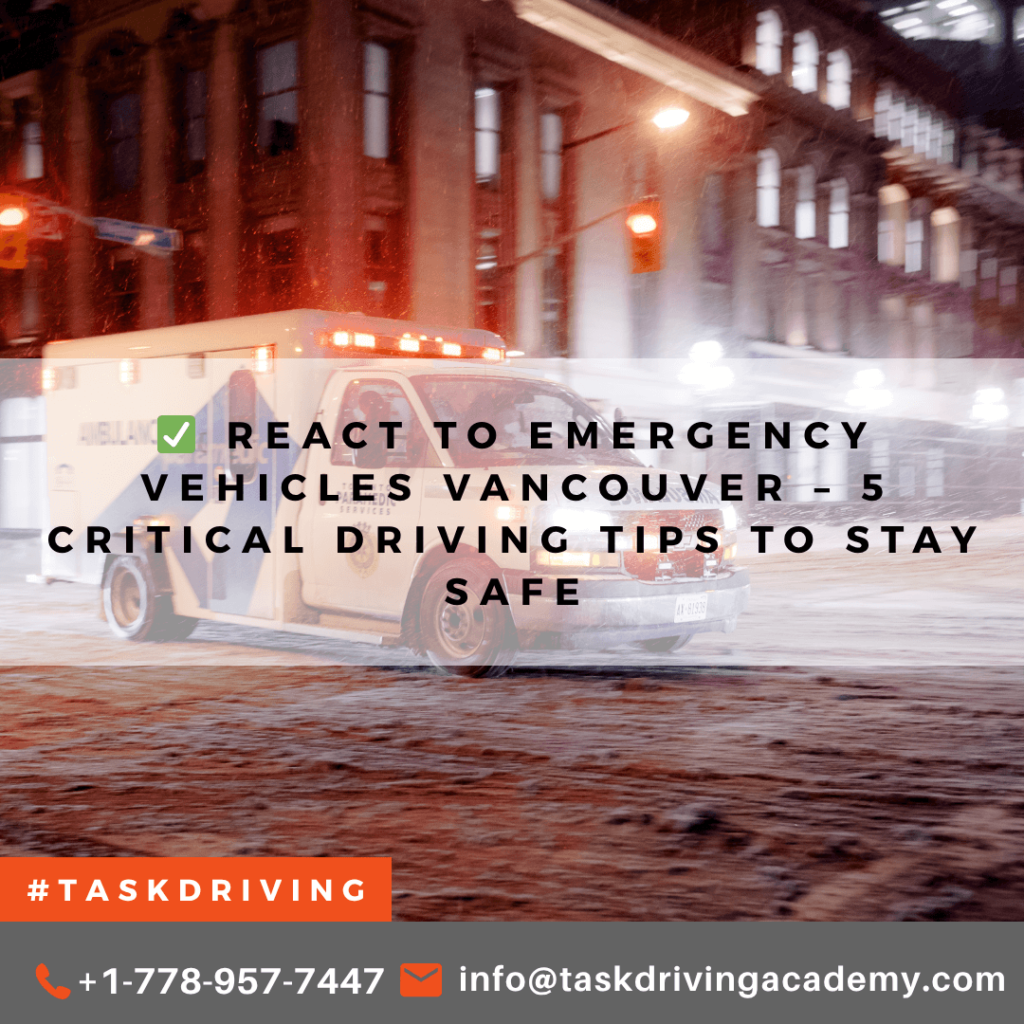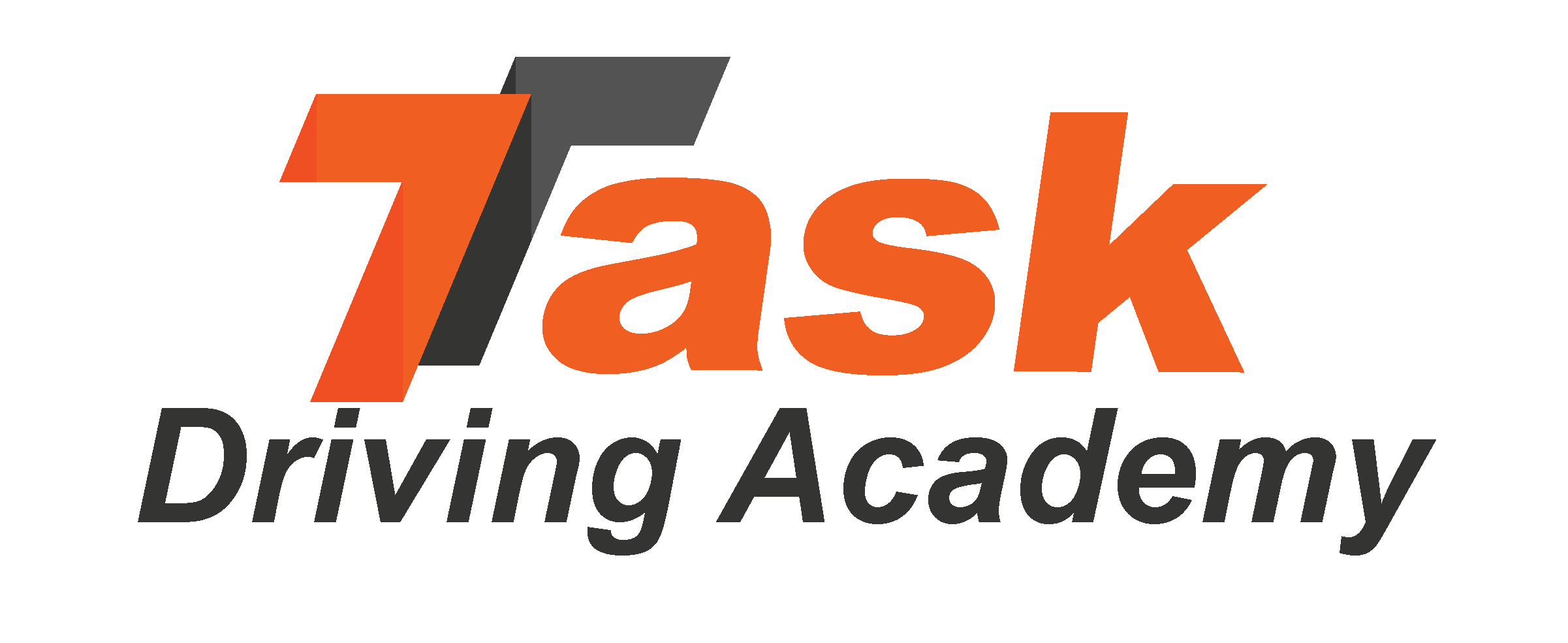React to Emergency Vehicles Vancouver is a vital skill every new and experienced driver must master. In busy city traffic, knowing how to properly yield to ambulances, fire trucks, or police cars is not just a legal requirement—it can make the difference between life and death.
Whether you’re taking lessons from a driving school in Vancouver or preparing for your ICBC road test, this guide will help you stay safe and confident on the road.
Table of Contents
🚨 1. React to Emergency Vehicles Vancouver by Pulling Over Safely
The most important rule when emergency vehicles approach with flashing lights and sirens is to safely pull over to the right side of the road and stop. In Vancouver, this law applies to all types of roads:
- Move right and stop until the emergency vehicle passes.
- Clear the intersection if you’re already in one, then pull over.
- Never stop in an intersection or block it.
Failure to follow this rule can result in a $109 fine and 3 penalty points on your driving record in BC.
🚨 2. Don’t Panic in Vancouver’s Heavy Traffic
Vancouver’s busy roads—like Granville, Broadway, or Kingsway—can make reacting tricky. But staying calm is key.
Here’s what to do:
- If there’s no clear space, move over as far right as safely possible.
- Avoid blocking other drivers or doing anything unpredictable.
- Use your signals to let others know what you’re doing.
Even if space is tight, do your best to create a clear path.
🚨 3. Avoid These Common Mistakes Learners Make
As a learner driver in Vancouver, you might not know exactly what to do. Here are the top mistakes to avoid:
- Stopping suddenly without checking behind you.
- Speeding up to “beat” the emergency vehicle.
- Blocking bike lanes, bus stops, or crosswalks.
Driving instructors from Vancouver driving schools often include these scenarios in practice sessions for this exact reason.

🚨 4. Stay Focused – Distractions Can Cost Lives
To react to emergency vehicles Vancouver safely, you need to be fully focused. Turn off or silence your phone before driving and avoid distractions like:
- Loud music
- Chatting while driving
- Adjusting navigation apps during motion
Remember: emergency vehicles can approach from any direction, and staying alert is your best defense.
🚨 5. Know Vancouver’s Unique Driving Environment
Vancouver has unique urban challenges, such as:
- Narrow residential streets
- Busy pedestrian crossings
- Pop-up bike lanes and one-way roads
You must mirror check and shoulder check frequently, especially around areas like Commercial Drive or Main Street. Recognizing sirens early gives you more time to respond.
✅ Bonus Tip: Emergency Vehicles on Highways and Multi-Lane Roads
If you’re driving on a major road like Highway 1 or Marine Drive, remember:
- Move to the right-most lane.
- Slow down, but don’t stop in a lane.
- Let the emergency vehicle pass safely on the left.
Never follow or tailgate an emergency vehicle to “ride through” traffic—it’s dangerous and illegal.
📘 Final Thoughts: Learn from a Trusted Vancouver Driving School
Mastering how to react to emergency vehicles Vancouver is part of becoming a responsible and skilled driver. If you’re preparing for your ICBC road test or just want to improve your road knowledge, practicing this skill is essential.
📍 Learn with Task Driving Academy in Vancouver
At Task Driving Academy, our experienced instructors teach you real-life driving scenarios—including how to safely respond to emergency vehicles. Book your lesson today and gain confidence on the road.
